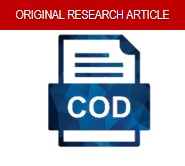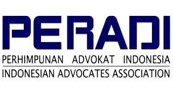Principles of Good Governance According to Law Number 32 of 2004
DOI:
https://doi.org/10.46924/jihk.v2i1.130Keywords:
Principles of Government Maintenance, Good Governance, Law No. 32 of 2004Abstract
This study aims to determine the implementation of good governance, especially in Yahukimo Regency according to Law No. 32 of 2004, and to find out the obstacles faced by the Yahukimo Government in establishing good governance. The research method used was empirical juridical research method which was carried out to find and obtain data directly in the field according to the problems studied. Data were obtained through observation, interviews, and document studies. The results of the study indicate that the application of good governance, especially in the procurement of goods and services, in Yahukimo is generally guided by Law No. 32 of 2004 and Presidential Decree No. 80 of 2003 on guidelines for the implementation of the procurement. Obstacles in the procurement do not fully meet the expectations of good governance, it is caused by: (1) that legislation as a guideline for the procurement does not regulate clearly; (2) The institution that specifically handles policy development, guidance and control of the procurement has not been established; (3) Quality and quantity of Human Resources; (4) Information and technology facilities and infrastructure have not been able to support the procurement.
Downloads
References
Jurnal
Adi, Cosmas Sakti Wijaya. “Analisis Penerapan E-Procurement Menggunakan Sistem Pengadaan Secara Elektronik: Studi Kasus Pada Layanan Pengadaan Secara Elektronik (LPSE) Kementerian Keuangan Papua Barat.” Indonesian Treasury Review: Jurnal Perbendaharaan, Keuangan Negara, Dan Kebijakan Publik 2, no. 2 (2017): 1–16. https://doi.org/10.33105/itrev.v2i2.16.
Andrea, Danetta Leoni. “Penyelenggaraan Otonomi Daerah Bidang Pendidikan Berdasarkan Undang-Undang Nomor 23 Tahun 2014 Tentang Pemerintahan Daerah.” Jurnal Ilmu Hukum Kyadiren 1, no. 2 (2020): 157–65. https://doi.org/10.46924/jihk.v1i2.128.
Butt, Simon. “Anti-Corruption Reform in Indonesia: An Obituary?” Bulletin of Indonesian Economic Studies 47, no. 3 (2011): 381–394. https://doi.org/10.1080/00074918.2011.619051.
Endah, Kiki. “Pelaksanaan Otonomi Daerah Di Indonesia.” Moderat: Jurnal Ilmiah Ilmu Pemerintahan 2, no. 2 (2016): 797–804. https://doi.org/10.25147/moderat.v2i2.2697.
Faisal, Nur Ilmi, Jenny Morasa, and Lidia M Mawikere. “Analisis Sistem Pengadaan Barang Dan Jasa (Penunjung Langsung) Pada Di Dinas Pekerjaan Umum Dan Penataan Ruang Kota Manado.” Jurnal Riset Akuntansi Going Concern 12, no. 2 (2017): 1122–32. https://doi.org/10.32400/gc.12.2.18613.2017.
Fajrurrahman, Febby. “Penerapan Hukum Pengadaan Barang/Jasa Pemerintah Sebagai Sengketa Tata Usaha Negara.” Jurnal Hukum Peratun 2, no. 2 (2019): 191–212. https://doi.org/10.25216/peratun.222019.191-212.
Nurcahyo, R, A. D Wibowo, and R. F. E Putra. “Key Performance Indicators Development for Government Agency.” International Journal of Technology 6, no. 5 (2015): 856–63. https://doi.org/10.14716/ijtech.v6i5.1840.
Pimentel, David. “Rule of Law Reform Without Cultural Imperialism? Reinforcing Customary Justice Through Collateral Review.” Hague Journal on the Rule of Law 2, no. 1 (2010): 1–28. https://doi.org/10.1017/S1876404510100013.
Sukmana, Oman. “Konsep Dan Desain Negara Kesejahteraan (Welfare State).” Sospol : Jurnal Sosial Politik 2, no. 1 (2017): 103–22. https://doi.org/10.22219/sospol.v2i1.4759.
Sunarto, Sunarto. “Prinsip Checks and Balances Dalam Sistem Ketatanegaraan Indonesia.” Masalah-Masalah Hukum 45, no. 2 (2016): 157–63. https://doi.org/10.14710/mmh.45.2.2016.157-163.
Widodo, Joko. Good Governance (Telaah Dan Dimensi Akuntabilitas Dan Kontrol Birokrasi Pada Era Desentralisasi Dan Otonomi Daerah). Surabaya: Insan Cendekia, 2001.
Buku
Anthon, Raharusun. Desentralisasi Asimetrik Dalam Negara Kesatuan Republik Indonesia. 1st ed. Yogyakarta: Genta Publishing, 2014.
Dwipayana, A.A.GN Ari. “Menata Desentralisasi Indonesia.” Yogyakarta: Fakultas Ilmu Politik dan Pemerintahan Universitas Gadjah Mada, 2011.
Simarmata, Henry T. Negara Kesejahteraan Dan Globalisasi: Pengembangan Kebijkan Dan Perbandingan Pengalaman. Jakarta: PSIK Universitas Paramadina, 2008.
Sjafrizal. Perencanaan Pembangunan Daerah Dalam Era Otonomi. Jakarta: PT. Raja Grafindo Persada, 2014.
Wawancara
Bahabol, Saliok. “Wawancara Dengan Kepala Badan Kepegawaian Daerah Kabupaten Yahukimo.” 2019.
Manuwarun, Cris. “Wawancara Dengan Sekretaris Kabupaten Yahukimo.” 2019.
Downloads
Published
Issue
Section
License
Authors who publish with this journal agree to the following terms:
- Copyright on any article is retained by the author(s).
- The author grants the journal, the right of first publication with the work simultaneously licensed under a Creative Commons Attribution License that allows others to share the work with an acknowledgment of the work’s authorship and initial publication in this journal.
- Authors are able to enter into separate, additional contractual arrangements for the non-exclusive distribution of the journal’s published version of the work (e.g., post it to an institutional repository or publish it in a book), with an acknowledgment of its initial publication in this journal.
- Authors are permitted and encouraged to post their work online (e.g., in institutional repositories or on their website) prior to and during the submission process, as it can lead to productive exchanges, as well as earlier and greater citation of published work.
- The article and any associated published material is distributed under the Creative Commons Attribution 4.0 International License




 Sinta ID:
Sinta ID: 


















